Out-of-court dispute settlement body
The out-of-court dispute settlement bodies pursuant to Article 21 of the DSA serve to settle disputes between users and online platform providers. The user may submit the dispute to any of the independent bodies certified under the DSA.
Currently, CTU cannot handle requests for certification of out-of-court dispute settlement bodies.
The out-of-court dispute settlement body is obliged to decide on the matter within 90 days, or in complex cases within 180 days at the latest. The result of the procedure is a non-binding decision. In addition, the user may contest the provider's decision in court at any time.
For procedure the user shall pay no charge or just a nominal fee. Providers may be charged a reasonable fee, which shall not exceed the costs of the procedure. If successful, the user shall be entitled to reimbursement of all fees and reasonable costs of the proceedings by the provider. If unsuccessful, the user shall not be obliged to pay the costs of the proceedings to the provider.
Who can initiate a dispute settlement?
Dispute settlements can be initiated by the recipients of the service and by the individuals or bodies who have submitted a notice about illegal content. Out-of-court dispute settlement is not conditioned by prior use of the provider's internal complaint handling system.
With which providers can out-of-court dispute settlement be initiated?
All providers of online platform services pursuant to Article 3(i) of the DSA, except for small and micro enterprises, are obliged to cooperate with an out-of-court dispute settlement body.
What disputes does the out-of-court dispute settlement body decide?
All disputes arising from decisions of the online platform provider in relation to notices or against the decisions listed below taken by the online platform provider for illegality of content or incompatibility with the terms and conditions:
- Decisions to remove or disable access to or restrict visibility of the information;
- a decision to suspend or terminate the provision of the service, in whole or in part, to the recipients;
- a decision to suspend or terminate recipients' user accounts;
- a decision to suspend, terminate or otherwise restrict a user's commercial content.
Who can become an out-of-court dispute settlement body?
A legal entity that applies to the Digital Services Coordinator and demonstrates that it meets the following criteria:
- it is impartial and independent, including financially, of providers of online platforms and of recipients of the services, including of individuals or entities that have submitted notices;
- has the necessary expertise in one or more areas of illegal content or in the application and enforcement of the terms and conditions of one or more types of online platforms;
- its members are remunerated in a way that is not linked to the outcome of the procedure;
- provides easy access to out-of-court dispute settlement through electronic communication technologies and allows for the initiation of dispute settlement and the submission of requisite supporting documents online;
- is capable of settling disputes in a swift, efficient and cost-effective manner and in at least one of the official languages of the institutions of the Union;
- the out-of-court dispute settlement takes place in accordance with clear and fair rules of procedure that are easily and publicly accessible and that comply with applicable law.
Certification can be granted for a maximum period of 5 years with the possibility of extension.
Obligations of the out-of-court dispute settlement body
In particular, the certified body must comply with the terms of certification and must inform the parties to the dispute of the amount of the fees before the procedure is initiated. The bodies must report annually to the Digital Services Coordinator on their functioning, indicating the number of disputes submitted to them, information on the outcome of these disputes, the average time taken to settle the dispute and the shortcomings or difficulties identified.






